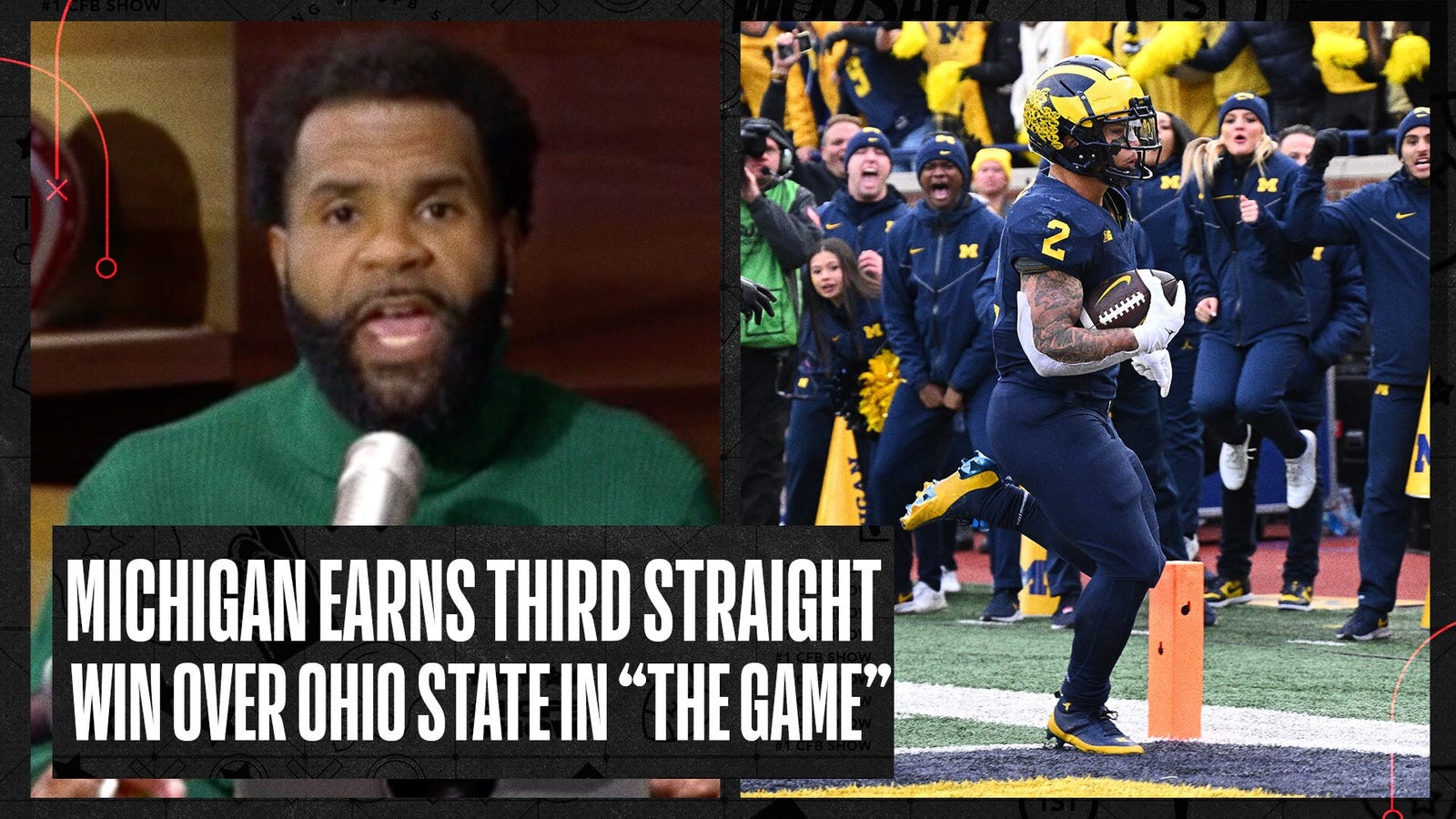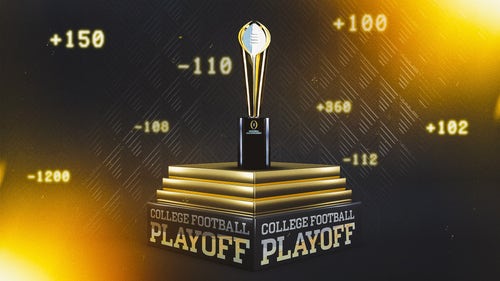
Michigan's Jim Harbaugh says he'd take less money 'for players to have a share'
In his latest set of remarks advocating for a revenue-sharing model to benefit student-athletes, Michigan football coach Jim Harbaugh said he would be open to reducing his salary if the extra money could be redirected to players.
"I'm using my voice," Harbaugh said Sunday on a Zoom call to preview the Big Ten championship game (Saturday, 8 p.m. ET on FOX and the FOX Sports app). "And I would take less money for the players to have a share. I hope other coaches would use their voice to express the same thing."
Over the course of a 25-minute media session, Harbaugh's initial comments about distributing profits to athletes came in response to a question about Michigan right guard Zak Zinter, who suffered a season-ending injury during Saturday's win over Ohio State. Zinter broke his tibia and fibula when another player collided with his left leg late in the third quarter. Teammates described hearing Zinter scream in pain as his foot hung limply until the Wolverines' training staff arrived.
Zinter's left leg was placed in an air cast before medical personnel loaded him onto a stretcher and then carted him off the field. A public message from Zinter's family on Saturday evening said he was transported to a local hospital and immediately underwent surgery. Harbaugh visited the family in the hospital later that night, and Zinter has since posted on social media to say the surgery was successful.
"I was hoping for the best," Harbaugh said. "But in your mind, you start preparing for the worst. Then I saw him. He's just so tough, so strong. He ended up with a broken [fibula] and tibia. You really feel that because when you're laying there on the field with a broken bone, I mean, those bones tend to rub together, and it's really painful. Just what a stalwart he was. And then at the hospital he was so happy for his team. The great news was that it was probably the best of the worst-case scenario, because those bones will heal."
From there, Harbaugh veered into a prolonged explanation about the importance of compensating players for the entertainment value they provide. He said a week filled with commercials, hype and discussions about the magnitude of Michigan's game against Ohio State — which featured undefeated teams for the second consecutive season and, as a result, major College Football Playoff implications — reminded him just how many people are profiting from college athletics.
"Who could be against the players being compensated for what they do?" Harbaugh said. "At least even minimum wage. I mean, who could argue against that when there's injury or not?"
Toward the end of the call, Harbaugh, who will earn more than $7 million this year in base salary alone, was asked if he'd consider putting some of his own money toward his program's NIL efforts or other avenues that benefit athletes. Harbaugh referenced the money he donated back to Michigan's athletic department in 2021 as evidence of his willingness to be more than just a verbal advocate.
Prior to the '21 season, athletic director Warde Manuel had reworked Harbaugh's contract and designed it in such a way that Harbaugh could secure millions of dollars in bonuses from incentives tied to Michigan's performance. Harbaugh earned $500,000 when his team defeated Ohio State that year to be crowned champion of the Big Ten East, $1 million dollars for beating Iowa in the Big Ten title game, and another $500,000 for reaching the College Football Playoff. Had the Wolverines won the national championship, Harbaugh would have pocketed an additional $1 million.
In November of that year, Harbaugh announced that he and his wife promised to donate all bonus money back to the athletic department to reimburse employees who were forced to take pay cuts during the pandemic.
"I ask other coaches to get on board, to use their platform and their voice for the student-athletes," Harbaugh said on Sunday. "And not just football players, all student-athletes, to be sharing in this ever-increasing revenue. That was another thought that I had [while watching the game against Ohio State], and I just don't know who could be against that."
Michael Cohen covers college football and basketball for FOX Sports with an emphasis on the Big Ten. Follow him on Twitter at @Michael_Cohen13.











